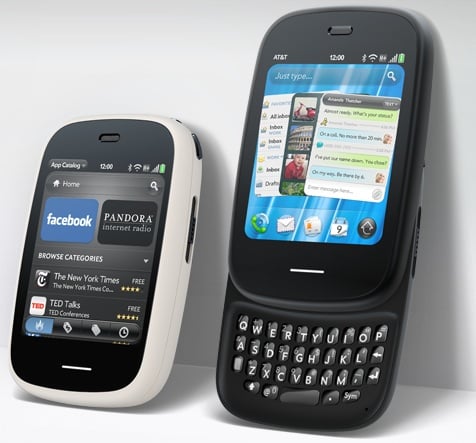Find Our Latest Video Reviews on YouTube!
If you want to stay on top of all of our video reviews of the latest tech, be sure to check out and subscribe to the Gear Live YouTube channel, hosted by Andru Edwards! It’s free!
Friday August 19, 2011 11:35 am
HP getting rid of PC business, webOS devices dead

Hewlett-Packard on Thursday confirmed that it will acquire U.K.-based Autonomy for $10.2 billion and is looking to spin off its PC assets.
Together with its plans to stop supporting webOS devices, the announcements mark a major change for HP. They appear to represent a seismic shift in how the Silicon Valley computing giant, the world's largest tech company in terms of annual revenue, plans to conduct business going forward.
The HP board's authorization of "the exploration of strategic alternatives for its Personal Systems Group (PSG)" includes "a broad range of options that may include, among others, a full or partial separation of PSG from HP through a spin-off or other transaction." Unlike the dumping of recently acquired Palm, slipping badly in a market dominated by Apple and devices running Google's Android OS, a spin-off of the PSG means HP would be parting with a long-standing investment that has turned into the biggest PC maker in the world.
HP acquired Compaq for $25 billion in 2002 following an acrimonious proxy battle that saw HP co-founder Walter Hewlett line up against the deal. With the addition of Compaq, one of the largest PC makers in the world at the time, HP's Personal Systems Group has led the industry in global PC market share for four years running, reaching a height of 19.3 percent of the market in 2009.
The Personal Systems Group currently accounts for about a third of HP's quarterly revenue—the company is set to announce total sales of $31.2 billion for the second quarter of 2011 in an earnings call after the closing bell Thursday—but margins for the business unit have slipped even as the profitability of HP's enterprise-focused services, software, server, and networking businesses has grown.
The acquisition of Autonomy, a developer of database search applications and the U.K.'s second-largest software maker, would further push HP along the enterprise-focused track the company has been pursuing since its $13.9-billion deal for Electronic Data Systems (EDS)—now HP Enterprise Services—in 2008.
Combined, today's announcements will bring HP in step with rival tech giants IBM and Cisco, which in recent times have similarly taken a hatchet to corporate components deemed ancillary to a core business mission.
IBM acquired PWC Consulting from PricewaterhouseCoopers in 2002 and then sold its PC Company Division to Lenovo in 2005—two major moves HP appears to be aping, albeit years later, with its own deal for EDS and proposed spin-off of PSG.
More recently, Cisco decided to rid itself of consumer-targeted units like its Flip camera division and retrench with a renewed focus on its core networking infrastructure business. Again, the parallels with HP's proposed restructuring seem obvious.
Ahead of Thursday's earnings call, analysts generally felt a leaner HP would be a healthier HP—though even such a major restructuring wasn't necessarily a cure-all for a company that's struggled to meet investor expectations in recent quarters.
HP management has apparently concluded that they need to break up the company to better demonstrate the growth of its individual parts, said Jean Bozman, a vice president and analyst in IDC's enterprise computing group.
"Quite frankly, they've had this problem before," Bozman said. "It's why they spun off Agilent. If this were to happen and they were to spin [the PC business] off, it [would be a way] to show the Street how you're growing your new businesses."
"Look at the Fortune 500. How many companies are bigger? Not many, and most of them are oil companies," she said.
Brian J. White, a senior research analyst with Ticonderoga Securities, called the news "long-term positive" for HP.
"We believe the potential divestiture or spin off of HP's PC business and the shutdown of webOS is a long-term positive, however, this will not change the near-term challenges for HP," White wrote in a research note.
The decision to discontinue webOS devices, meanwhile, is the only one of the three seemingly set in stone. "HP will continue to explore options to optimize the value of webOS software going forward," HP said, but last year's $1.2 billion acquisition of Palm and its smartphone and mobile OS business now appears to have been a major mistake on the part of HP.
This article, written by Damon Poeter, originally appeared on PCMag.com and is republished on Gear Live with the permission of Ziff Davis, Inc.











